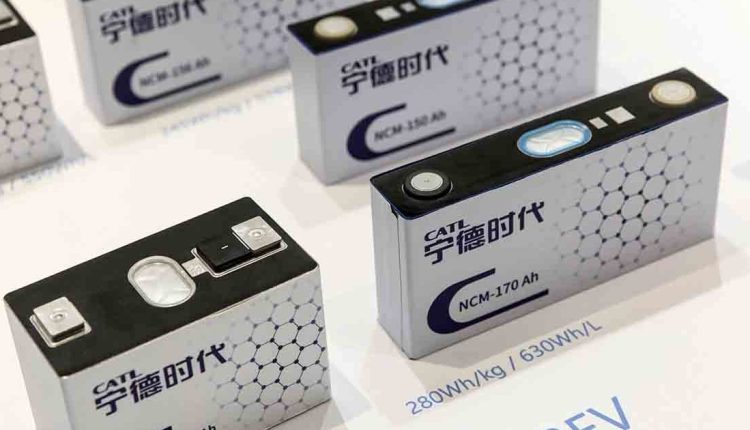The Treasury Department is scheduled to issue guidance finalizing the content requirements and tax credits of the IRA by the end of this month.
‘Still deliberating’
“CATL is still deliberating on investing in the U.S. and we have not made the decision yet,” the battery maker said in an emailed statement. “There are multiple models being discussed regarding our investment in the U.S., and all of those choices are purely based on and only based on business concerns.”
The company, which already has a deal to sell batteries to Ford for use in its flagship F-150 Lightning and Mustang Mach-E vehicles, said it’s “not true” that the Chinese government objects to CATL investing in the U.S.
The Chinese Embassy in Washington had no immediate response to a request for comment. China’s Foreign Ministry didn’t immediately respond for a request for comment.
Ford said in a statement that “our talks with CATL continue — and we have nothing new to announce.”
If Ford opts for Virginia or elsewhere, it would mark another high-profile snub of its home state. Ford opted to build battery hubs in Tennessee and Kentucky in its initial $11 billion investment with South Korea’s SK Innovation Co.
Securing enough batteries to build millions of plug-in models has become a key competitive battleground in the emerging EV market. In addition to Ford’s joint venture with SK, General Motors has established a partnership with South Korea’s LG Energy Solution Ltd. to build battery plants in the U.S.
“It is incredibly important to own the battery value chain, there’s no doubt,” Lisa Drake, Ford’s vice president of EV industrialization, said in an interview Tuesday on the sidelines of a Ford technology event. That “is why we are controlling the raw materials ourselves, nickel, lithium, etc.”
She declined to comment on the specifics of negotiations with CATL.
Cost competitive
CATL, the world’s biggest maker of batteries for electric vehicles, has been considering locations in Mexico and the U.S. to supply cells to automakers including Ford and Tesla Inc., Bloomberg reported earlier this year. But the production tax credit in the IRA, worth as much as $35 per kilowatt hour for each cell produced, could make manufacturing batteries in the U.S. cheaper than in Mexico, according to the people familiar with the matter. The subsidies also offset U.S. tariffs on raw materials imported from China.
Ford announced its partnership with CATL in July, saying it had secured 70 percent of the battery capacity needed to build more than 2 million EVs annually starting in 2026, a goal set by CEO Jim Farley.
On Ford’s third-quarter earnings call in October, Farley was asked about the status of the CATL partnership given tensions between the U.S. and China. Farley said Ford could “economically” import lithium iron phosphate, or LFP, batteries from China, but alluded to other options to localize production.
“The real billion-dollar question is, when do you localize production of LFP in North America?,” he said on the call. “Whose name is on the front of the building?”


